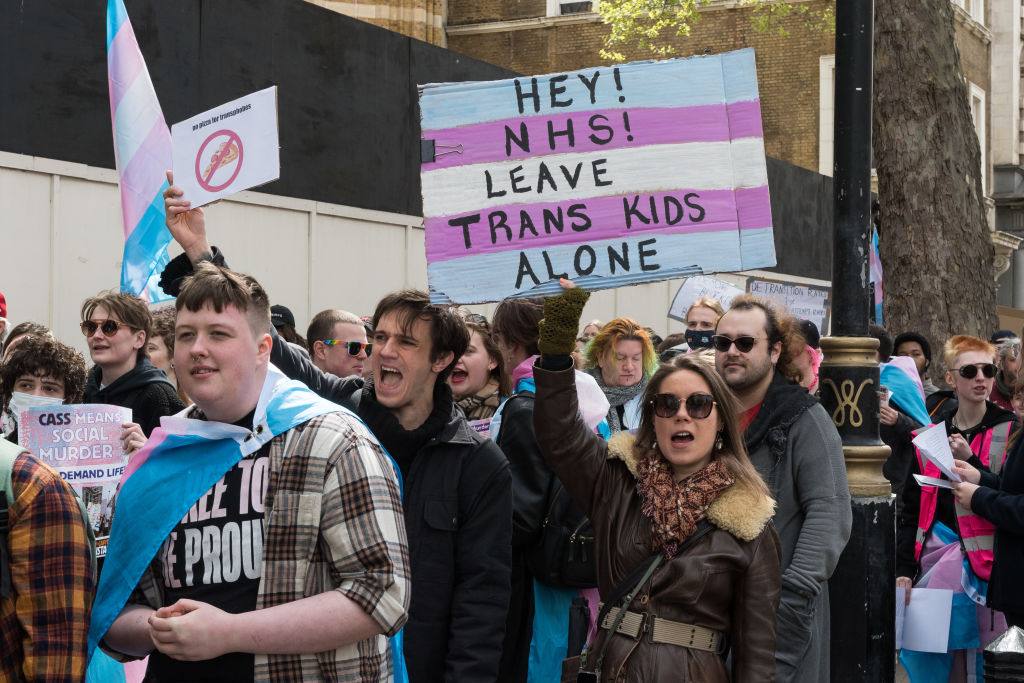Next month, NHS England will start recruiting for a trial into the effects of puberty-blocking drugs for gender-distressed children. Some might say better late than never, given the many problems identified by the Cass Review earlier this year. Nonetheless, a group of clinicians and campaigners have written to Health Secretary Wes Streeting, expressing concern as to whether the trial should be going ahead at all, at least in its current form.
Among the issues raised by Genspect, Transgender Trend, the LGB Alliance and others are the decision to focus on puberty blockers with no announcement of “a complimentary study into psychological interventions”. Also highlighted is the continued absence of “a clear rationale” for their usage, as well as the difficulty of recruiting individuals who are sufficiently mature to consent to the treatment and also lack “unstable family relationships, poor psychological functioning or a history of trauma”.
Reading the letter, it becomes increasingly clear that “only a very small number of patients would be eligible to participate”. One could go further: these eligible patients surely cannot exist. In which case, how can such a trial ever be ethical?
Of course, children who are gender non-conforming and/or deeply distressed by their sexed bodies do exist and always have. And nor should Dr Hilary Cass have framed her review along the lines of “there is no such thing as the trans child”, an approach which would have given too much ammunition to those already primed to smear her as a bigot. Cass was in a difficult position, insofar as granting any legitimacy to “gender medicine” already raises the question of whether the “trans child” is a real phenomenon. Having been tasked with analysing the provision of care, as opposed to its conceptual underpinnings, her hands were tied.
Now, though, serious questions should be asked over where to go next. If the aim of any trial is to find the best way of helping children, we should be honest about not just the medical, but the social and cultural impact of puberty blockers as a remedy. The lie that one can “press pause” on puberty, or even go on to change sex, has fundamentally altered how young people experience gender dysphoria (the diagnostic term itself — so much more authoritative than mere “distress” or “unhappiness” — might be said to have done the same). It’s a lie which has already obstructed attempts to explore gender distress holistically, looking at both causes and genuine ways forward.
Gender identity adherents insist that “gender clinics” do not treat mental illness or delusion. Indeed, this has been an assumption on which the prescription of puberty blockers has relied. Yet to desperately want to be the opposite sex, to the extent of wanting to harm your own body, is to be mentally unwell. To think it is possible to put a life stage on hold is to fundamentally misunderstand how human development works. Those who have not yet gone through puberty lack the maturity to be in a position to decide against it.
A potential outcome of any trial could be to show that some children never voice regret, and the response to this might then be to claim that all one need do is ensure only “true” trans children receive blockers. Yet this would not be finding a cure so much as finding a way to excuse mistakes already made. For self-declared believers in social construction, gender medicine supporters show little understanding of how their own ideology has created the conditions in which lifelong physical suffering has become the best some children can hope for.
Any good-faith trial into how best to treat childhood gender distress needs to recognise that everyone must grow up and no one can change sex. Puberty blockers aren’t a treatment option, but instead a treatment obstruction. They have played a fundamental role in heightening gender distress and masking its causes. We cannot find the cure in the sickness itself.











Join the discussion
Join like minded readers that support our journalism by becoming a paid subscriber
To join the discussion in the comments, become a paid subscriber.
Join like minded readers that support our journalism, read unlimited articles and enjoy other subscriber-only benefits.
Subscribe